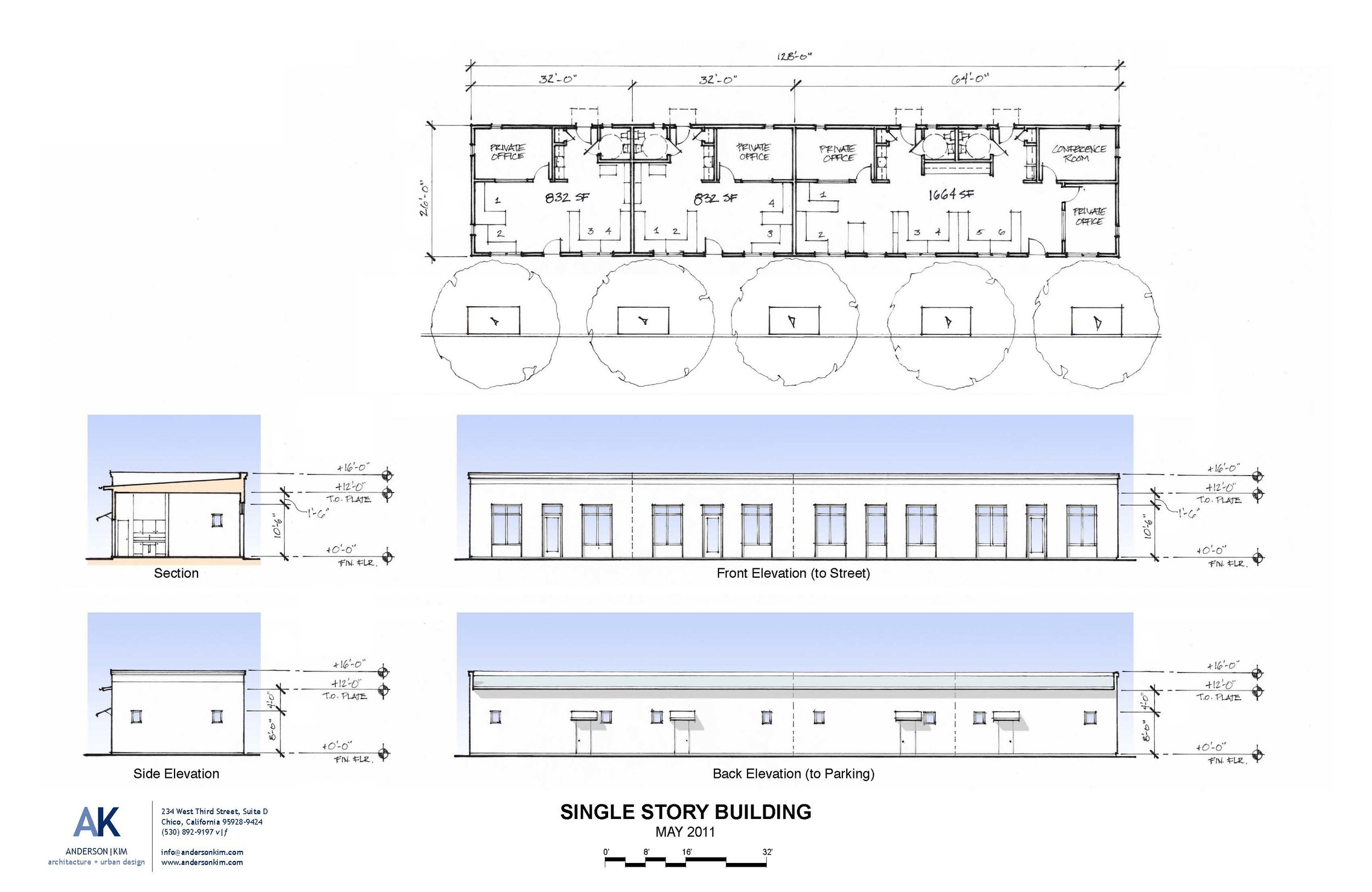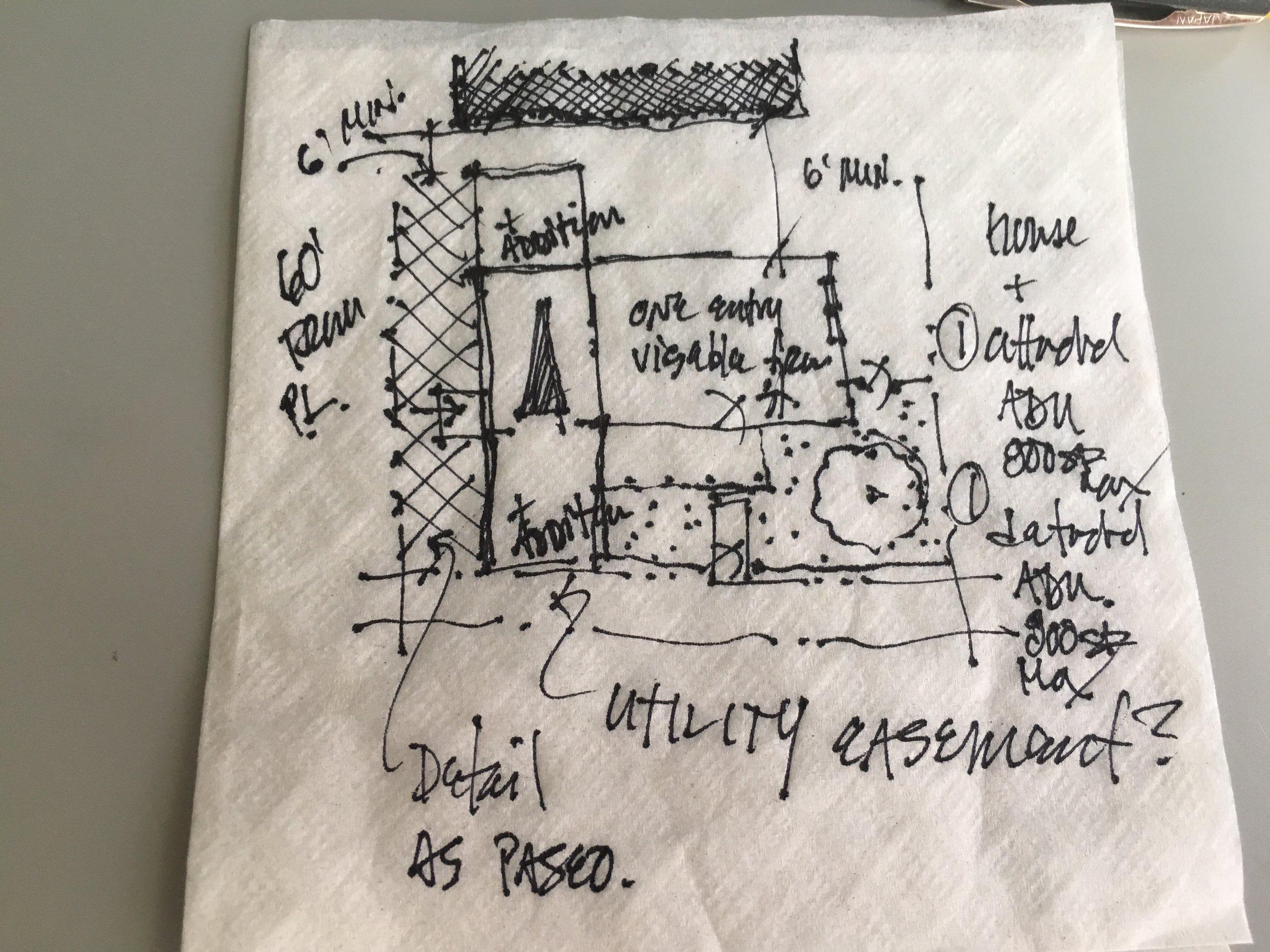single-story-commercial-bay
110525_4x-single-story
I think there are lots of great precedents for small single story main street buildings that work well. Above are some studies David Kim and Will Dowdy did on small, shallow storefront spaces that could be used as parking lot liners or in conjunction with small apartment buildings and cottage courts located behind the small commercial/flex building to provide mixed use without requiring the use of commercial steel pipe fire sprinklers that can be required if the residential and non-residential Occupancy Types were combined into in one mixed use building.
The intent was provide a wide/shallow space that could be flexible. We settled on a depth of 26' as this leaves an 18' dimension between the 8 x 8 accessible restroom and the storefront. We were also looking to keep any columns or other intermediate structure out of the floor plan and 20'-32' of depth is readily spanned without going nuts on the truss design. You can get pre-engineered bar joists at 40' long, but we wanted to keep the construction technique within the skills of residential trades.
Keeping the depth modest allows for daylighting of the space from a transom and light shelf over the storefront and awning. Spaces this small are easily heated and cooled with a ductless mini-split heat pump/air conditioner.
Using a single pitch roof truss, sloping from the street side to the rear, with a parapet on the street side can provide lots of room for signage, while screening compressors or kitchen hood fans from the street view.
Buildings that are flexible enough to house small and inexpensive workspace for retail, services, food and drink, etc. should be in the Small Developer's tool box. You may know an under-utilized parking lot that could be lined with something like this. Could be good way to follow up on testing the location with some food carts.
Steve Mouzon has some very interesting thoughts along these lines. His blog has better production values than mine does, so I encourage you to click through and check it out.



 I continue to ask Urbanists "why aren't you a developer yet?" That's a sincere and serious question. I am serious about recruiting Architects, planners, engineers, activists who consider themselves to be urbanists (New or otherwise) into the ranks of the small developer cohort because I think it is the best way for an urbanist to have an impact in a place they care about. If you have devoted thousand of hours of study and practice to what makes a good place, why leave the construction and renovation of buildings to developers? This question becomes a bit more pointed when you recognize that many conventional developers are doing work in urban settings under duress or without much of a clue how to make their efforts fit a more urban context. I think the typical generalist/urbanist will do a better job than whatever big development outfits are working in their city.
I continue to ask Urbanists "why aren't you a developer yet?" That's a sincere and serious question. I am serious about recruiting Architects, planners, engineers, activists who consider themselves to be urbanists (New or otherwise) into the ranks of the small developer cohort because I think it is the best way for an urbanist to have an impact in a place they care about. If you have devoted thousand of hours of study and practice to what makes a good place, why leave the construction and renovation of buildings to developers? This question becomes a bit more pointed when you recognize that many conventional developers are doing work in urban settings under duress or without much of a clue how to make their efforts fit a more urban context. I think the typical generalist/urbanist will do a better job than whatever big development outfits are working in their city.